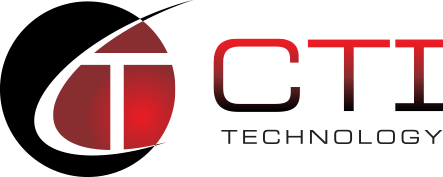Operational IT Management: Streamlining Chicago Business Success
Operational IT management is critical to any business, ensuring that IT systems and services work efficiently and effectively to meet the organization’s needs. This encompasses planning, implementing, delivering, and supporting IT services to meet internal and external user requirements. With the increasing reliance on technology in today’s business environment, it’s essential to have strategies to manage and maintain IT operations for continued growth and success.
As the foundation of a business’s IT infrastructure, operational IT management involves management and strategic approaches that guide the planning, building, and operating of digital services, technology components, and application requirements. This practice touches on all aspects of technology management, from IT service delivery and support to risk management, monitoring, and evaluation of IT operations. Understanding the essentials of operational IT management is key to ensuring your organization stays ahead of the curve and minimizes potential risks and downtime.
Key Takeaways
- Operational IT management is crucial for efficient and effective IT systems and services that align with business needs.
- This practice covers various aspects like planning, implementation, delivery, support, and risk management in an organization’s IT infrastructure.
- Understanding the essentials of operational IT management helps organizations minimize risks, avoid downtime, and stay ahead in the ever-evolving technology landscape.
Essentials of Operational IT Management
As an organization looking to optimize its IT operations, it’s crucial to understand the essentials of operational IT management. This discipline involves managing and maintaining your IT infrastructure to ensure seamless and cost-effective business operations.
1. Align IT with business goals: Your IT operations should always support your organization’s goals and objectives. Prioritize projects and allocate resources accordingly, considering the strategic impact of IT investments on the business. This will help keep your IT department focused on activities that provide the most value to your organization.
2. Embrace automation: Implementing automation in your IT operations can simplify processes and reduce human errors. By automating routine tasks like server provisioning, software updates, and backups, your team can dedicate more time to strategic initiatives that drive growth and innovation.
3. Monitor and optimize performance: Regularly monitor the performance of your IT infrastructure for potential bottlenecks, inefficiencies, and security threats. Use metrics and KPIs to ensure that your IT operations perform at peak and meet your desired service levels. This will help identify improvement areas and maximize your IT resources’ value.
4. Ensure data security and compliance: Maintaining the security and integrity of your organization’s data should be a top priority. Implement robust security measures, including firewalls, intrusion detection systems, and data encryption. Additionally, stay updated on relevant regulations and industry standards to ensure your IT operations comply with all requirements.
5. Foster a culture of continuous improvement: Encourage your IT team to continuously learn and adapt to new technologies, methodologies, and best practices in IT operations management. By promoting a culture of ongoing learning and improvement, you will empower your team to drive innovation and boost the overall efficiency of your IT operations.
By following these essentials of operational IT management, your organization can ensure that its IT infrastructure stays reliable and efficient, ultimately driving success in today’s technology-driven business landscape.
IT Service Delivery and Support
As an organization focused on improving your IT operations, it’s essential to have a solid understanding of IT service delivery and support. This section will delve into key sub-sections: Incident and Problem Management, Service Level Management, and Capacity and Availability Management.
Incident and Problem Management
When maintaining smooth IT operations, addressing incidents and problems promptly and efficiently is crucial. As an organization in the Chicago and Chicagoland region, you need a system in place to:
- Identify, log, and categorize incidents
- Track incidents through their lifecycle
- Escalate incidents when necessary
- Implement effective problem resolutions
By partnering with CTI Technology, your organization can benefit from the industry-leading incident and problem management solutions that help minimize disruptions to your IT services and operations.
Service Level Management
Implementing service level management is vital to guarantee that your IT services meet the necessary quality, responsiveness, and availability levels. This includes:
- Establishing service level agreements (SLAs) with clients
- Regularly monitoring and reporting on SLA performance
- Implementing improvements to achieve desired in-service quality
Rely on CTI Technology’s expertise in managing and surpassing the service level expectations of organizations throughout the Chicago and Chicagoland region and ensure your IT operations flourish.
Capacity and Availability Management
Optimizing the IT infrastructure is essential to secure your needed stability and performance. Capacity and availability management includes:
- Assessing and planning for future capacity needs
- Monitoring and managing resource utilization
- Ensuring service availability and business continuity
With CTI Technology at your side, you can trust their vast experience in assisting companies across Chicago and the Chicagoland region to optimize their IT infrastructure effectively.
By focusing on these important aspects of IT service delivery and support, you can improve the efficiency and reliability of your IT operations, leading to an enhanced level of service for your clients and increased overall success for your organization.
IT Plan and Organize
Strategic Planning
In Operational IT Management, one of your initial tasks is to develop a strategic plan. This helps you define your organization’s goals and lay out a clear roadmap to reach them. Ensure to align the strategic plan with your organizational objectives and its role in supporting business growth.
A key tip for successful strategic planning is thoroughly analyzing your industry, competitors, and the latest technology trends. This lets you identify opportunities and challenges that might impact your IT infrastructure. Additionally, you can develop strategies to prepare your organization for the ever-evolving IT landscape, positioning it as the leading tech company for organizations in Chicago and the surrounding regions.
Organizing and Mobilizing
Once you have a clear strategic plan, your next step involves organizing and mobilizing resources to execute the plan. Start by outlining your IT team’s structure, roles, and responsibilities. This promotes efficiency and accountability within the team, ensuring all members understand what is expected of them.
To achieve your goals and stay ahead in the competitive Chicago tech landscape, remember the following:
- Allocate resources and budgets effectively to meet the strategic objectives.
- Prioritize projects and initiatives based on their alignment with the organization’s strategy.
- Define, monitor, and measure key performance indicators (KPIs) to track progress and optimize performance.
- Communicate your IT strategy to your team, clarifying how each role contributes to the overall objectives.
With a strong strategic plan to guide your IT operations and an organized team ready to execute that plan, your organization will be well-positioned for success in the Chicago tech scene. By planning and organizing effectively, you’ll ensure a streamlined, efficient IT infrastructure that helps drive business growth and maintain your organization’s competitive edge.
IT Operations Management
System and Network Management
In IT Operations Management, System and Network Management is crucial in ensuring the seamless functioning of your organization’s infrastructure. With robust system and network management, you can:
- Monitor the performance of servers and computer systems, optimizing the usage of resources.
- Manage the devices, endpoints, and other hardware connected to your network.
- Streamline network performance by analyzing data traffic and planning for network capacity.
- Identify and resolve network issues before they impact your daily operations.
- Design and implement network security strategies to protect your organization’s valuable information.
As your organization grows, CTI Technology ensures that your system and network management evolve, enhancing your operational efficiency in the Chicagoland region.
Database and Storage Management
Another key aspect in IT Operations Management is Database and Storage Management. Focusing on this significant area, you can benefit from the following:
- Store, manage, and access your organization’s data proficiently through well-structured databases.
- Regularly monitor database performance and optimize queries for improved efficiency and speed.
- Implement backup and recovery strategies to ensure the safety and availability of crucial business data.
- Secure your databases by managing user access control, encryption, and data privacy measures.
- Efficiently manage storage infrastructure to cater to growing data needs with enhanced performance.
By entrusting CTI Technology, you can be confident that your database and storage management strategies are designed and executed effectively, allowing you to focus on driving your business forward in Chicago and beyond.
IT Monitor and Evaluate
Performance Monitoring
In Operational IT Management, your organization must monitor and evaluate the IT infrastructure effectively. Performance monitoring involves assessing the performance of your hardware, software, and overall IT environment. Utilize software tools to track key performance indicators (KPIs), such as response times, ticket resolution times, and capacity utilization.
Consistently monitoring these KPIs will help your organization:
- Identify areas of improvement
- Optimize resource allocation
- Ensure efficient processes
- Maintain high-quality service levels
By utilizing a proactive approach to performance monitoring, you position your organization, like CTI Technology, as a leading tech company in the Chicagoland region.
Risk and Compliance Management
Another essential aspect of IT monitoring and evaluation is risk and compliance management. Implementing effective risk management strategies helps your organization mitigate potential threats and vulnerabilities while maintaining compliance with industry standards and regulations.
Consider the following steps to manage risk and compliance effectively:
- Identify risks: Perform regular risk assessments to identify potential threats and vulnerabilities within your IT environment.
- Establish protocols: Develop procedures and guidelines to address identified risks, ensuring your organization complies with industry standards.
- Monitor and mitigate: Monitor your IT environment for risks and take appropriate action when issues are detected. This allows your organization to adapt and react to emerging threats quickly.
Risk and compliance management is crucial in maintaining the integrity and security of your organization’s IT infrastructure. By prioritizing risk management, you demonstrate a commitment to protecting your organization’s data and reputation, showcasing your expertise as a leading tech company, like CTI Technology, in the Chicago and Chicagoland region.
Trends in Operational IT Management
Adoption of New Technologies
In today’s fast-paced business environment, you must keep up with the latest trends and technologies in operational IT management. Incorporating new technologies can significantly improve your organization’s efficiency and agility. For instance, the global IT operations and service management market is expected to grow 7.5% by 2025, with IT infrastructure and services reaching $35.98 billion in the same year.
IT operations teams are increasingly using software to monitor behaviors and streamline their processes, with the IT operations analytics market predicted to grow up to $19.84 billion in 2022. Adopting agile development methods enables IT operations teams to rapidly deploy new applications, features, and updates into production.
Security in Operational IT
As the Chicagoland region’s leading tech company, CTI Technology understands the importance of security in operational IT. One of the primary concerns for organizations today is protecting their valuable data and IT infrastructure from potential threats.
With the increasing reliance on cloud technologies and the growing complexity of deploying and running applications, it is essential to invest in advanced security measures to protect your business from potential cyberattacks. This also includes the implementation of automation and Site Reliability Engineering (SRE) practices to maintain a robust and resilient IT infrastructure.
By staying updated on the latest trends in operational IT management and investing in the right tools, technologies, and practices, you can position your organization for success and ensure that your IT operations are efficient, secure, and aligned with your business objectives.
Risk Management in Operational IT
Effective risk management is crucial to your organization’s operational IT strategy. It helps identify potential threats, vulnerabilities, and the appropriate measures for mitigating them. By dedicating resources to managing IT risks, your organization can minimize losses and keep operations running smoothly.
As you assess operational IT risk, consider focusing on cybersecurity, system failures, and data breaches. Regularly evaluate your IT infrastructure, including hardware, software, and networks, to uncover potential risks.
To effectively manage risk, follow these key steps:
- Risk Identification: Identify and document potential risks affecting your organization’s IT operations. This process involves examining assets, threats, and vulnerabilities.
- Risk Assessment: Prioritize risks based on their probability and potential impact on your organization. Evaluate each risk in terms of both likelihood and consequence.
- Risk Mitigation: Develop and implement controls to reduce or eliminate identified risks. Controls can include technical solutions, policies, procedures, or a combination of these measures.
- Monitoring and Review: Continuously monitor the effectiveness of implemented controls and review them continuously. This ensures that any new or changing risks are identified and addressed promptly.
By implementing a robust risk management strategy in your operational IT, your organization can maintain efficient operations, reduce financial losses, and ensure the confidentiality, integrity, and availability of critical business data. Remember to keep abreast of the latest industry trends, best practices, and tools to avoid emerging risks and protect your organization’s valuable assets.
Conclusion
In this digital era, Operational IT Management is vital in ensuring businesses’ efficient and cost-effective operations. By mastering IT operations management, you can enhance organizational structure, practices, and processes to maximize profits and keep your software and services running smoothly.
CTI Technology, leading the way in the Chicagoland region, empowers organizations like yours to stay ahead of competitors in Chicago and beyond. By leveraging IT operations management, you can streamline processes, oversee multiple departments, and achieve better coordination across your business.
As a result of this, your organization will be able to:
- Respond quickly to incidents and minimize downtime
- Maintain high-quality software, systems, and services
- Optimize resource allocation to drive business value
With CTI Technology by your side, you can unlock the full potential of operational IT management and stay competitive in an ever-evolving digital landscape. With increased efficiency and profitability, your organization will continue to thrive, and you can confidently navigate the dynamic world of IT operations management.
Why Is CTI Technology The Best Choice For IT Services In The Chicagoland Region?






















